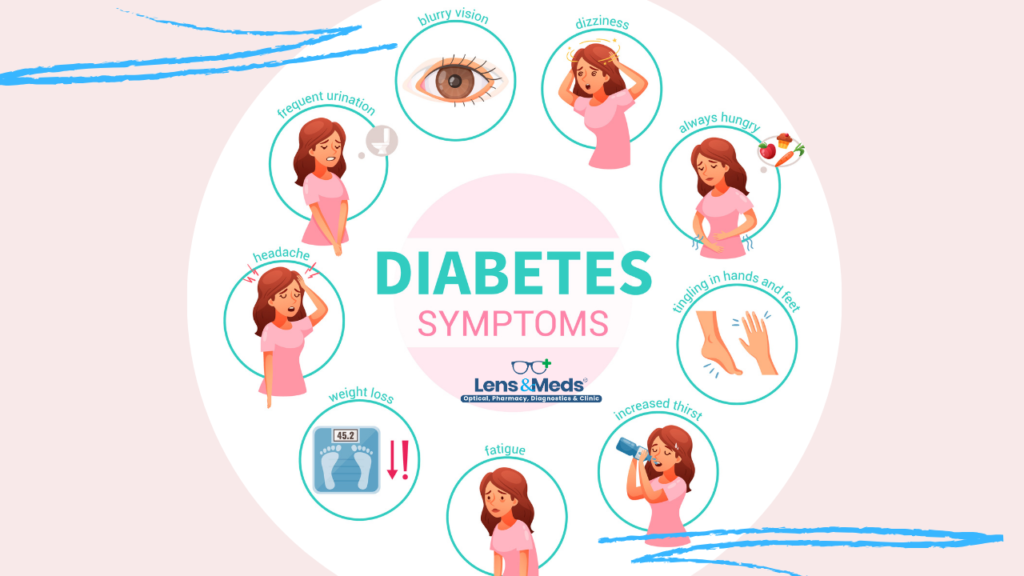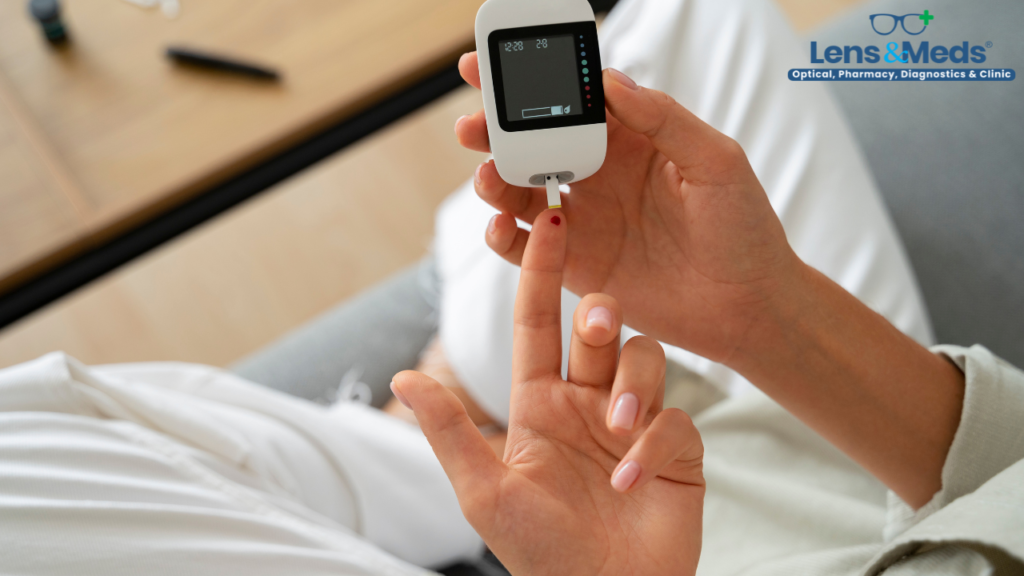Diabetes is a chronic disease that affects how your body regulates blood sugar. When you have diabetes, your body either doesn’t produce enough insulin or can’t effectively use the insulin it produces. Insulin is a hormone that helps your cells absorb glucose (sugar) from the bloodstream for energy.
While many people know about the common symptoms of diabetes, such as increased urination and excessive thirst, there are also several lesser-known signs that can indicate the presence of the disease. Early detection and treatment of diabetes are crucial for preventing serious complications.
In this article, we’ll explore 10 unusual symptoms of diabetes that you shouldn’t ignore.

- Skin Changes
Diabetes can cause several skin problems, including:
- Dry, itchy skin: High blood sugar can lead to dehydration, which can make your skin dry and itchy.
- Skin infections: Diabetes weakens the immune system, making you more susceptible to skin infections like boils, carbuncles, and fungal infections.
- Slow-healing wounds: Diabetes can impair circulation, which can slow down the healing process of wounds, cuts, and scrapes.
- Diabetic dermopathy: This condition causes raised, red, or brown patches to appear on your shins or lower legs.
- Necrobiosis lipoidica diabeticorum: This rare skin condition causes yellowish, waxy patches to form on your shins or calves.
2. Hearing Problems
Hearing loss can be a complication of diabetes. High blood sugar can damage nerves throughout the body, including those that control hearing. If you have it and notice any changes in your hearing, such as difficulty hearing high-pitched sounds or muffled speech, be sure to see your doctor.
3. Blurred Vision
Blurred vision is a common symptom of high blood sugar. When your blood sugar is elevated, the fluid in your eyes can change, causing temporary blurring. Fluctuating blood sugar levels can also contribute to blurry vision. If you experience blurry vision, it’s important to see your doctor to rule out other potential causes and ensure your diabetes is well-managed.
4. Frequent Gum Infections
People with diabetes are more prone to gum infections, such as gingivitis and periodontitis. High blood sugar levels can create an environment in your mouth that promotes the growth of bacteria. Gum infections can also worsen blood sugar control, creating a vicious cycle. Practicing good oral hygiene and seeing your dentist regularly are essential for preventing gum problems.
5. Digestive Problems
Diabetes can affect your digestive system in several ways, leading to:
- Gastroparesis: This condition causes slow stomach emptying, which can lead to nausea, vomiting, bloating, and heartburn.
- Diarrhea or constipation: It can contribute to problems with digestion, leading to constipation or diarrhea.

6. Joint Pain
Joint pain is a common complaint among people with diabetes. High blood sugar levels can damage nerves and tissues throughout the body, including those in the joints.
7. Sexual Dysfunction
Diabetes can affect both men’s and women’s sexual health. In men, it can lead to erectile dysfunction. In women, it can cause vaginal dryness and decreased libido.
8. Fatigue
Fatigue is a common symptom of many conditions, including diabetes. When your cells can’t properly use glucose for energy due to insulin deficiency or resistance, it can leave you feeling tired and sluggish.
9. Foot Problems
Diabetes can cause nerve damage in the feet, leading to:
- Loss of sensation: This can make it difficult to feel injuries or pain in your feet, which can increase your risk of foot ulcers and infections.
- Poor circulation: It can also impair circulation to the feet, which can slow down healing and increase the risk of infection.
10. Sleep Problems
People with diabetes are more likely to experience sleep problems, such as insomnia, sleep apnea, and restless leg syndrome. High blood sugar levels can disrupt sleep patterns, and nerve damage can cause discomfort that makes it difficult to sleep.
Don’t Ignore These Warning Signs
If you’re experiencing any of these unusual symptoms, it’s important to see your doctor to get tested for diabetes. Early detection and treatment can help prevent serious complications, such as heart disease, stroke, kidney disease, nerve damage, and vision problems.
Taking Charge of Your Diabetes Care
If you’ve been diagnosed with diabetes, there are steps you can take to manage your condition and live a healthy life. Here are some key strategies:
- Monitor your blood sugar levels regularly. This will help you understand how your body responds to food, exercise, and medication.
- Eat a healthy diet

Causes of diabetes
There are two main types of diabetes: type 1 and type 2. Type 1 diabetes is usually caused by an autoimmune reaction, where the body’s immune system attacks and destroys the insulin-producing beta cells in the pancreas. Type 2 is most often caused by lifestyle factors such as being overweight or obese, not getting enough exercise, and eating a diet high in sugar and refined carbs. However, it can also be caused by genetic factors, pancreatic problems, endocrine disorders, and some medications.
No matter what type of diabetes you have, it can lead to serious health complications, including heart disease, stroke, kidney disease, eye problems, and nerve damage. That’s why it’s so important to catch it early and get treatment. If you think you might have diabetes, talk to your doctor about getting tested.
Conclusion:
In conclusion, being aware of unusual symptoms and adopting a proactive approach to diabetes management is crucial for a healthier life. If you suspect diabetes or want to ensure optimal health, consider the diagnostic services offered by LensandMeds. Visit lensandmeds.com for comprehensive diagnostics and expert consultation to start your journey towards better health. Whether you are living with diabetes, at risk, or supporting someone with the condition, early detection and proper care make all the difference. Empower yourself and your loved ones on the path to wellness.

Leave a Reply